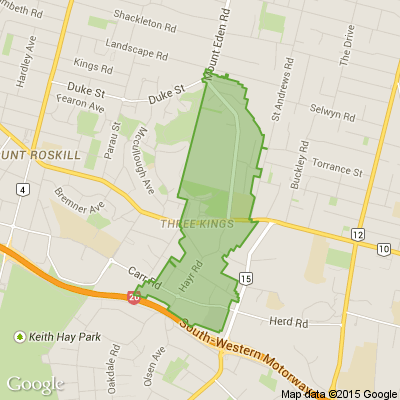Blessing scam
Three suspected scammers have been arrested trying to leave New Zealand with a large quantity of cash from their alleged victims.
A 50-year-old man and two women, 59 and 53, were arrested at Auckland International Airport yesterday by detectives from the Auckland City Financial Crime Unit. The trio, all Chinese nationals, were arrested just before they checked in for their flights to China.
They arrived in New Zealand on 10 October. Police alleged that two days later, they began operating a blessing scam – a form of fraud targeting immigrant or elderly communities who are deceived into believing they or their loved ones are cursed or in spiritual danger.
Police have jointly charged the three suspects with two counts of obtaining by deception. The charges relate to two victims – one who lost $14,500 and jewellery and another who lost $15,000.
The accused were remanded in custody following their arrest and are due to appear in the Auckland District Court today. Police are continuing to tally the money that has been recovered, but it is a substantial amount.
Perpetrators of blessing scams pose as healers or spiritual practitioners, offering to remove the curse or bring good fortune in exchange for money or valuable items. Victims are pressured to hand over cash or jewellery, typically instructed not to open the packages they receive, only to later discover that the contents are worthless.
While the Financial Crime Unit has identified two victims so far, it’s highly likely more people were targeted.
We urge anyone who may have fallen victim to this scam to contact us and encourage members of New Zealand’s Chinese community to talk with elderly relatives and make a report if they have been scammed.
If you have any information that could help our enquiries, please contact us at 105.police.govt.nz... or call 105.
In New Zealand, blessing scams have predominantly targeted Chinese communities, exploiting cultural beliefs in spiritual healing and curses. This type of fraud has been active in New Zealand for more than 15 years, with a notable rise in cases in Auckland in recent years.
Police have continued to raise awareness within at-risk communities, yet these fraudulent activities persist, often carried out by well-coordinated groups.
Police remain committed to protecting all members of the public from fraud and financial harm, and ensuring that everyone feels safe from deceptive practices.
We encourage the community to stay vigilant against scams and to remain cautious when approached by individuals offering unsolicited services.
If you suspect that you may have fallen victim to a scam, please contact Police via 105 immediately.
Dry cleaners mt Roskill
Hello our fellow neighbors I was hoping someone would know where the old dry cleaners we had up at the lights on dominion road have moved to?? I was out of town and when I came back they were gone .... I had some items that I would really love to get back but if only I new where they moved to or how to get In Touch with the owners to see what they did with our clothes if they closed down or moved elsewhere? Any updates or news about it would be amazing neighbors. Have a great day
Poll: As a customer, what do you think about automation?
The Press investigates the growing reliance on your unpaid labour.
Automation (or the “unpaid shift”) is often described as efficient ... but it tends to benefit employers more than consumers.
We want to know: What do you think about automation?
Are you for, or against?

-
9.4% For. Self-service is less frustrating and convenient.
-
43.5% I want to be able to choose.
-
47.1% Against. I want to deal with people.
New BEGINNERS LINEDANCING CLASS
Epsom Methodist church
12 pah Rd GREENWOODS cnr. Epsom
Monday 9th February 7pm - 9pm
Tuesday 10th February 10am -11am
Just turn up on the day









 Loading…
Loading…